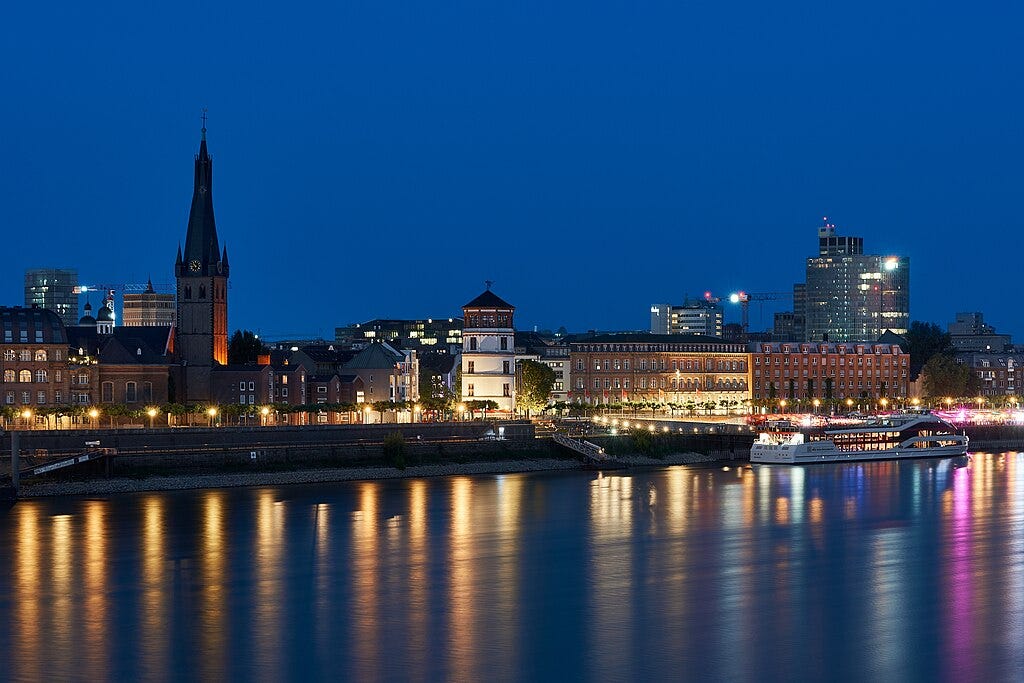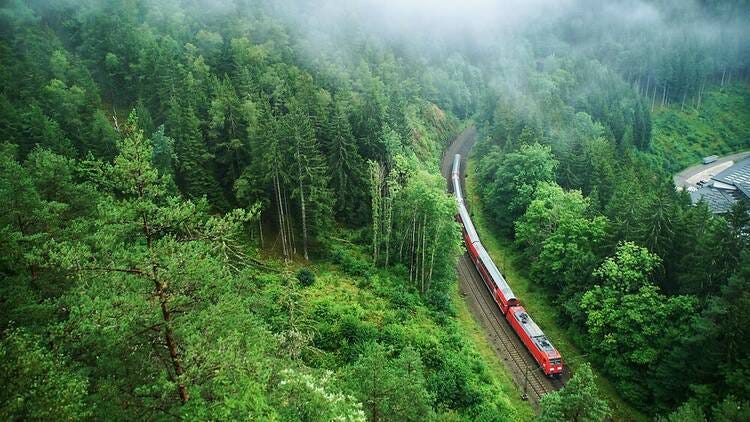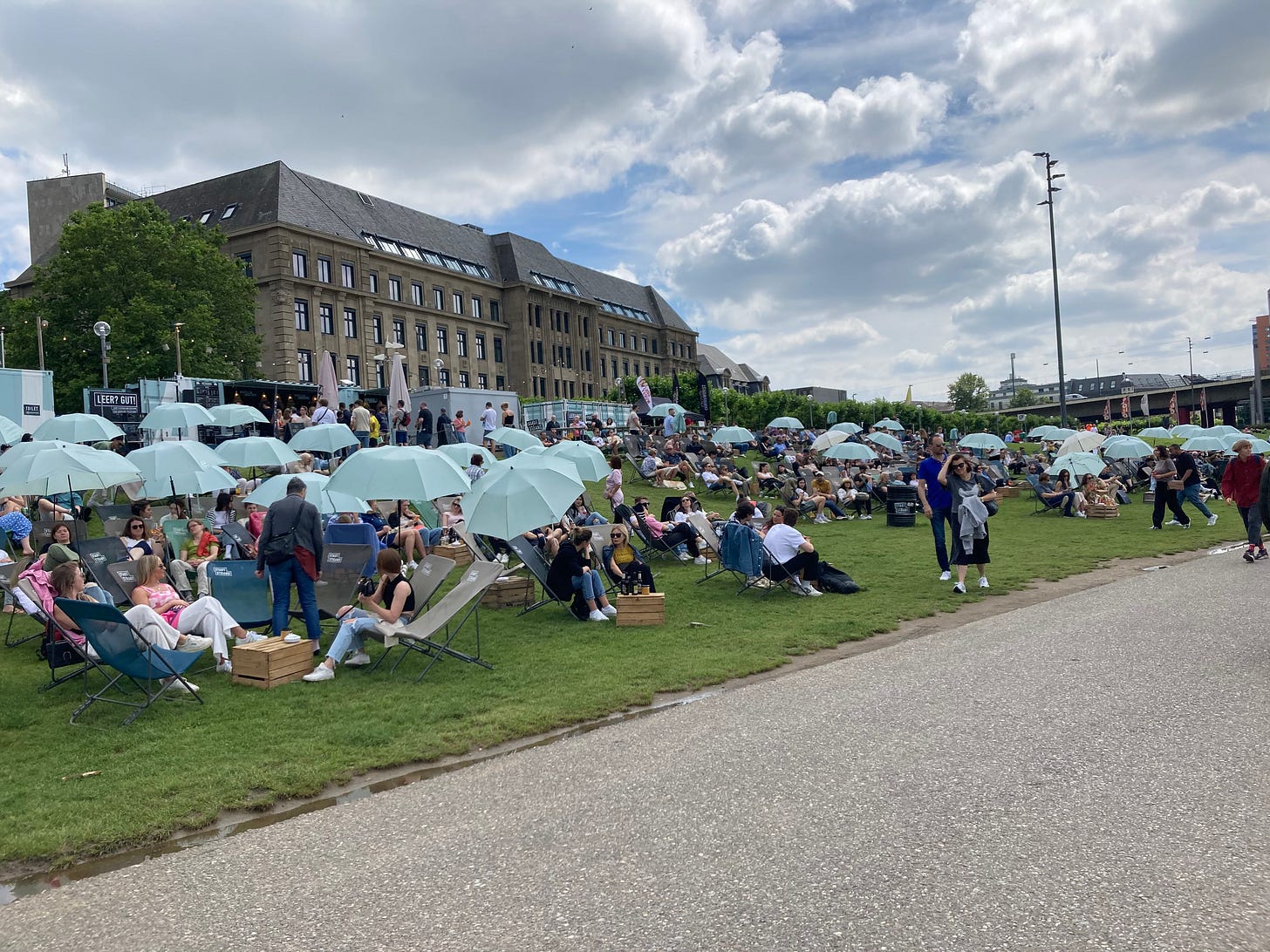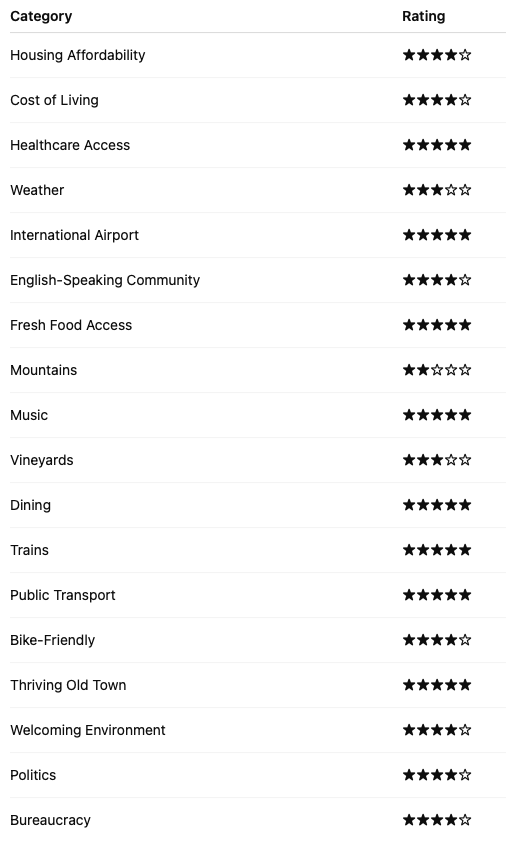For Your Consideration: Dusseldorf
In the Middle of Everything

Who would think of Düsseldorf as a place to retire? First off, the name is a problem. Just the way it sounds.
I have a habit of noticing places in the US named after European cities. It’s a way of thinking about early American immigrants. Their hopes and dreams are tattooed on the map of the US —New London, New York (formerly New Amsterdam), New Orleans, Toledo, and countless Athenses. For most big cities in Europe, you can find places named for them in the US. There’s even a bunch of little neighborhoods and communities throughout the US named “Innsbruck.”
Düsseldorf, though? Nein.
Nobody got off a ship in America, headed off into the great unknown west, found a piece of land by a river and said, “Let’s build our own little Düsseldorf here!”
For most Americans, if they think of Dusseldorf, they think of an industrial city—steel, machinery, and chemicals drove the city’s economy for much of the post-war twentieth century.
That’s fine. Maybe it will help keep the tourists away.
Keep Düsseldorf a Secret!
Düsseldorf is a magnificent city.
It’s awash in culture—music, theater, arts, festivals, museums, and food.
One of its main financial drivers is its convention and trade show business, and that’s facilitated by fantastic transportation infrastructure. It’s a nexus for trains, with over 1,000 departures per day.
My dreams for life in Europe always involves lots of train travel. I imagine heading out to Paris, Amsterdam, or London for an easy getaway. We ride in comfort, avoid the misery of security, have a drink in the dining car, and arrive in city center with the hotel just a walk or short tram ride away. Living in a city like Düsseldorf makes that vision much easier.
Also, Düsseldorf airport is a major international hub, so getting back and forth to the US wouldn’t be too bad.
It’s one of the most international cities in Germany. Düsseldorf has one of the largest Japanese communities in Europe, and the city’s Little Tokyo district is a vibrant, major attraction. There are sizeable Greek, Turkish, and Italian communities. And let’s not overlook the significant British and American expat population.
The Longest Bar in the World
I spent a couple of days in Düsseldorf last summer. It happened to be during Euro Cup, and there was a big match in town the next day. Euro Cup is a big deal and fans flock in from all over the continent. In the US, they would tailgate—gather in parking lots, drinking and eating out of elaborate barbecue/kitchen setups attached to their cars or RVs. In Germany, they swarm the old town. This, combined with the fact that Düsseldorf’s Altstadt is known as the Longest Bar in the World, made for a raucous couple of hours during my time there. All of the area’s 250 bars and pubs were packed. I managed to get a good meal in the midst of all of it, and met a couple of friendly Irish hooligans to boot. I had a lot of fun in the midst of the chanting and all, but it should be noted that the madness was pretty well contained. A few blocks away, everything seemed pretty normal.
If there’s a knock on Düsseldorf, it’s that it is so urban. It’s not an outdoor playground like Innsbruck or even Bern with its looming mountains. But it’s a great place to see music, theater, and interesting people. It’s right in the middle of Western Europe and a great base for visiting the rest of the continent. But it doesn’t have the majestic landscape and the weather tends to be a little grayer. It’s cloudier than the places that retirees flock to.
But all is not lost. Koblenz, the heart of Germany’s largest wine region, is about a ninety-minute drive south. Living in Atlanta, that feels like little more than a daily commute. And there are lots of castles down that way, too. Lots.
And of course, there’s the Rhine itself.
A few decades ago, the city dug a tunnel for a big highway and reclaimed its waterfront. Now that stretch is Rheinuferpromenade, miles of shops, restaurants, event venues, and green spaces. When I was there, the area was packed with local families quietly relaxing in the sun at the same time the Altstadt was earning its “longest bar in the world” title with soccer festivities.
Two Wheels Good
For a cyclist, the city has a lot to offer. There are lanes and trails everywhere, and the laws protecting cyclists are enforced, leading drivers to pay close attention. And of course, there’s Eurovelo 15. That’s the biking route I was on last summer when I stopped for a couple of days, and it’s one of Europe’s cycling highways, running from the Swiss Mountains all the way to the North Sea. It crosses other major routes along the way, so there are endless possibilities.
One of the questions that comes to mind when picking a really scenic location for retirement is, “What am I going to do when I get there?” Hiking and winter sports are central to places like Innsbruck or the Allgau, but will I want more to engage me than that? That’s not a question in a city like Düsseldorf. But that’s the balance. How much peace and quiet do I really want? If we end up in a city, Düsseldorf feels like a perfect fit for me—livable, relatively affordable, engaging, central, and friendly.
Okay, as they say on that show on public radio, let’s do the numbers:
Overall score: 4.2—We have a new leader.
When I first mentioned Düsseldorf as a possibility, my wife looked at me shocked. Not because she dislikes it, but because she still has many family connections just over the river from there, so it would be a favorite option for sentimental reasons. It turns out to have a lot to offer outside that consideration.
Song of the Week
I was going to post a Clara Schumann Scherzo. She lived in Düsseldorf for some very productive but tragic years, but I copped out and went with Keith Jarrett’s Köln Concert.
Köln and Düsseldorf are separated by just 25 miles and a whole lot of friendly animosity. Don’t order a Kölsch beer in Düsseldorf or an Altbier in Köln unless you’re prepared for verbal abuse.
Despite that, I don’t expect to review any places closer to Köln than Düsseldorf, so this is my only opportunity to post one of the most sublime recordings available to humankind.




Sounds beautiful. As a recent retiree, family, friends and access to healthcare are primary considerations. It helps if it is also gorgeous!
Time to pull the trigger?
And thanks for reminding me of the Clara Schumann Scherzo. Beautiful.